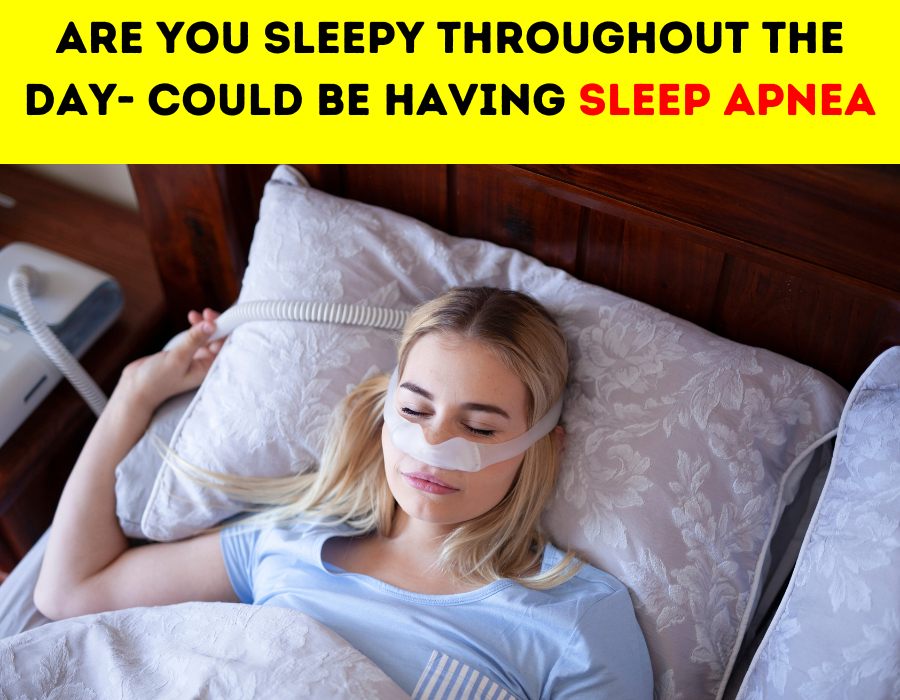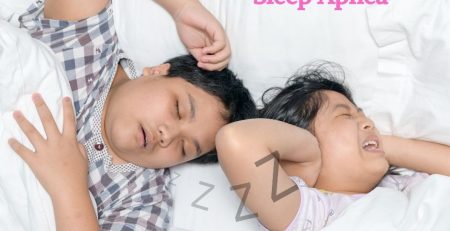Are You Sleepy Throughout The Day | Could Be Having Sleep Apnea
Feeling sleepy all the time, even after you thought you had a good night’s rest? If this sounds like you, you might be dealing with something more serious than just feeling tired. It might be a condition known as sleep apnea.
What is Sleep Apnea?
Sleep apnea is when your breathing repeatedly stops and starts while you sleep. It’s like your body hits the pause button on breathing, and it can happen many times through the night. There are two main types obstructive and central, but the most common one is obstructive sleep apnea, where your throat muscles relax too much, blocking your airway. This condition is often very manageable, especially with close adherence to prescribed treatments.
Why Should You Care About Sleep Apnea?
Wondering why this matters? Because your body and brain need oxygen to function properly! When sleep apnea interferes with your breathing, it also messes with the quality of your sleep. This means you’re not just sleepy during the day; you could be running on low battery without even knowing it. Plus, untreated sleep apnea can lead to other issues like high blood pressure, heart trouble, and even diabetes.
Signs That You Might Have Sleep Apnea
- Loud snoring (It’s not just annoying; it could be a clue!)
- Waking up suddenly and feeling like you’re gasping or choking
- Headaches in the morning (and not from your favorite late-night show)
- Feeling grumpy or having trouble paying attention
- Waking up feeling like you didn’t sleep at all, even if you were in bed for hours
Sleep Apnea in children
Sleep apnea in children may develop in several ways.
- Sleep apnea in children can lead to hyperactivity, difficulty focusing, and poor academic performance. This can mimic symptoms of attention-deficit/hyperactivity disorder (ADHD).
- Snoring loudly.
- Bedwetting.
- Frequent arm or leg movements while sleeping.
- Sleeping in strange postures or with the neck extended.
- Reflux (heartburn), or nighttime sweats.
What Can You Do About It?
First things first: don’t panic! Sleep apnea is treatable. If these symptoms ring a bell, the best next step is to chat with a doctor who knows all about sleep. They might suggest you do a sleep study, which is like a little slumber party at a clinic where experts watch how you sleep, or give you a gadget to monitor your sleep at home.
There are also some pretty simple things you can do:
- Try to maintain a healthy weight
- Avoid alcohol before bedtime
- Adjust your sleeping position
- Give up smoking if you’re a smoker
Management and Treatment
Treatment options for sleep apnea vary based on the kind and nature of the condition. While none of them are cures, they can help prevent or minimize the frequency and severity of apnea episodes.
Many different treatments should be part of your daily (or nighttime) plan. This can eventually minimize or even remove the impact of sleep apnea on your life as long as you continue to utilize these therapies.
Possible treatments include:
- Conservative (nonmedical) treatments.
- Positive airway pressure and adaptive ventilation devices.
- Oral appliances (mouthpieces).
- Nerve stimulators.
- Surgery.
- Medications (central sleep apnea only).
If you’re tired of feeling tired all the time, reach out to Dr. Seemab Shaikh‘s Sleep Apnea Treatment in Pune for expert care and guidance. Dr. Shaikh specializes in sleep apnea treatment. With his help, you can finally get the restful sleep you deserve and wake up feeling ready to take on the day!











